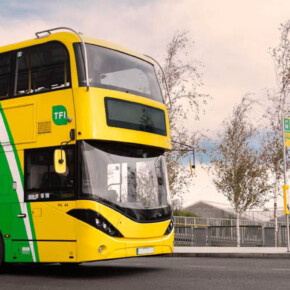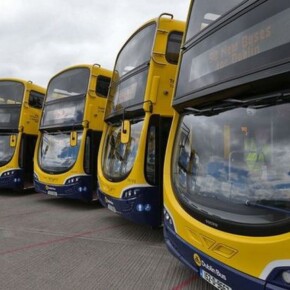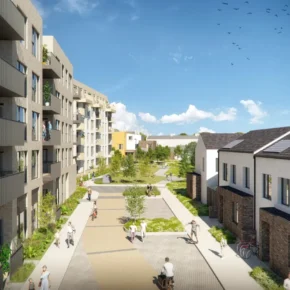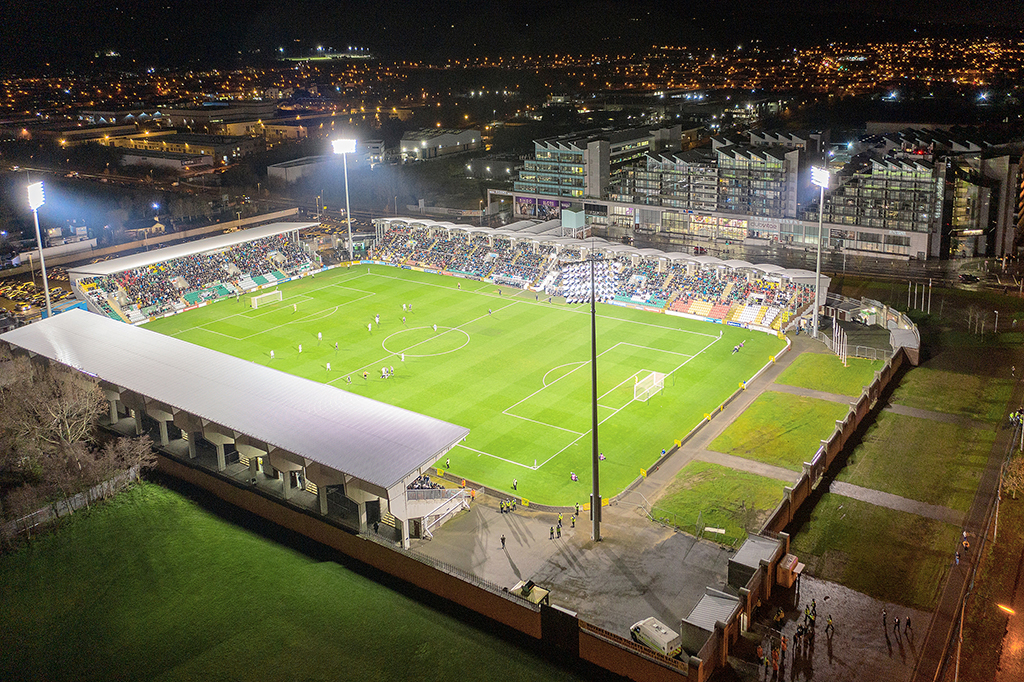City centre traffic plan being “watered down”, councillors say
Mike Finnerty 10 Jul 2024
Dublin City Council members have claimed that the previously agreed-upon city centre traffic plan is being watered down.
Due to be implemented in August, the plan, which was voted upon by a majority of Dublin City Council members last year and received over 3,500 submissions during a months-long public submission process, is now at the centre of a coalition row.
Freshly-appointed Fine Gael junior Minister Emer Higgins, who was not among the 3,500 people to make a submission during the consultation process which was open between September and December of last year, has expressed concern over the potential economic impact of the plan being implemented in its current form.
Higgins told RTÉ “for me it all comes down to protecting jobs. We heard from retailers in the last two weeks in particular that there are very valid concerns.”
“We know that it’s a difficult time to be a trader in Dublin at the moment with the reductions in footfall that comes from the change in work pattern behaviours, hybrid working, working from home and really I just want to make sure that their voice is being heard.”
On the eve of European elections, newly-elected Fine Gael MEP Regina Doherty said that the traffic plan would “make life difficult for Dubliners” (yet did not make a submission during the public consultation process last year).
“Dublin city centre should be open to all the people who live in Dublin. Instead, the details of Dublin City Council’s new transport management plan will make it harder to drive in town for those who live there, increase traffic congestion on our roads, and further increase commuting times for people who travel into Dublin on a daily basis.”
Labour leader Ivana Bacik, Green Party TD and deputy leader candidate Neasa Hourigan and independent Senator Micheal McDowell were the only elected representatives who made submissions during the public consultation process.
At the most recent meeting of Dublin City Council, council boss Richard Shakespeare said he would like to see the plan moved to March or April 2025 and for elected reps to consider the implications of an economic study carried out by the City Centre Traders Alliance.
Under the revised plans, the Irish Times reported that car parks under the control of the alliance (Arnotts and Fleet Street) would not see a change to their access routes and a number of buildings on a particular 50 metre stretch of Aston Quay will see limited access for private vehicles between 7am to 7pm.
In addition, the planned bus gate on Bachelor’s Walk will be reduced from 24 hours to 12 hours from 7am to 7pm.
The bus gates being defanged and reduced hours are a major point of contention among elected reps and commuters.
Green councillor Michael Pidgeon said the intervention by Higgins was “bizarre”.
Pidgeon, who leads the Greens on Dublin City Council, said that Higgins’ 11th-hour comments were “bizarre” and were merely serving vested business interests.
“Dubliners are sick of waiting. Waiting in traffic, waiting for buses, and now a minister wants them to wait for plans to fix up our city centre,” he said.
“This last-ditch intervention by Minister Emer Higgins is utterly bizarre. She is doing the work of vested interests – car park owners who fear any progress that would undermine their bottom line.”
“Dublin city’s design cannot be dictated by car park owners. City council management should stick to their guns. It’s time to implement this plan, improve the bus, and make the core city centre a better place to be.”
The disparity between the Greens on Dublin City Council and a high-profile intervention from a Fine Gael minister is now made more awkward by virtue of the two parties recently signing up to run Dublin City Council together.
Ryan is adamant that the plan will go ahead as planned, saying the plan is “not something that can wait.”
He expressed unease at the plan being watered down, stating “when you start to put conditions in, you weaken the real benefits.”
Social Democrats councillor Cat O’Driscoll called Higgins’ intervention “most unwelcome.”
O’Driscoll, who leads the Social Democrats on Dublin City Council, said “this plan is attempting to move through traffic out of the city centre, making it more accessible for anyone travelling into town by bus, Luas or private vehicle. Reduced traffic will improve air quality and shorten travel time in Dublin, making it a more attractive city to work, live and do business in.
“Instead of trying to scupper the transport plan, it would be more appropriate for the Minister to sit down with councillors and learn about the damage that traffic congestion is doing to our city from an environmental, health and business perspective.
The Dublin Commuters Coalition have written to Richard Shakespeare to express concerns over the watering down of the plan.
The letter criticises the “interference” from non-members of Dublin City Council, and asked Shakespeare not to cave into their demands.
“The lengthy consultation process for the DCC Transport Plan, resulted in 80% support from Dublin citizens, with one of the largest volumes of submissions ever recorded. In addition, last month’s local elections returned a majority of councillors who had supported the Transport Plan in its current form, further expressing the public’s support. These councillors made their support for the plan clear whilst canvassing, and voters elected them. Furthermore, these councillors’ support is clearly outlined in their ruling group’s document, stating that “agreed transport plans will be safeguarded and implemented”.
“It is concerning that the democratic process which involves input from all quarters of society, over an open and public consultation period, is now potentially being disregarded, in the eleventh hour, for the benefit of a powerful lobby group, representing the interests of a small number of city centre car parks, whose business model will always be opposed to any efforts to reduce car traffic in the City Centre,” they wrote.
They said that the weight given to business concerns is “disproportionate” to the weight given to the public’s opinion, saying that their complaints “undermine the democratic process of local government and public consultations; this subversion of democracy needs to be challenged.”











